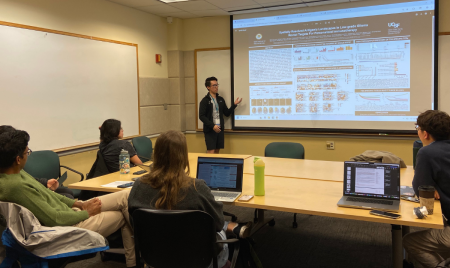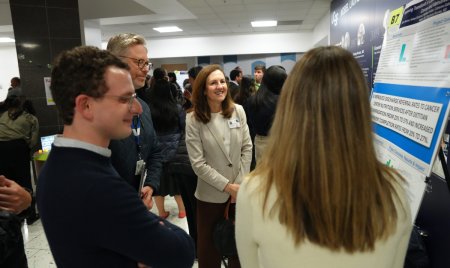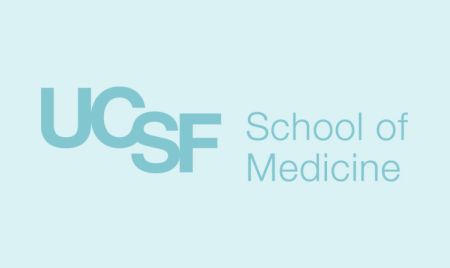Entering Third Year, Anti-Oppression Curriculum Initiative Builds Community and Momentum

The Anti-Oppression Curriculum Initiative (AOCI) team recently marked the second full academic year of the three-year process of evaluation, reflection, and redesign to move the Bridges Curriculum on the path towards an increasingly anti-oppressive approach, in partnership with faculty, students, and staff. The initiative team is led by Denise Connor, MD and is a foundational element of the broader Anti-Oppression Charter, overseen by Associate Dean for Curriculum, John Davis, PhD, MD.
The School of Medicine is committed to continuing the work being catalyzed by the three-year AOCI. With this in mind, the AOCI team, School leadership, and partners across the School are working together to develop a sustainable model that will integrate and extend the anti-oppressive (AO) work of the AOCI. The School expects to share more details in early 2024.
During the 2022-2023 academic year, the AOCI built on the momentum of its first year, continuing to partner with others across the School and university to provide best practices, resources, guidance, and consultation around core AO concepts and strategies. Below are some highlights of the second year of the AOCI.
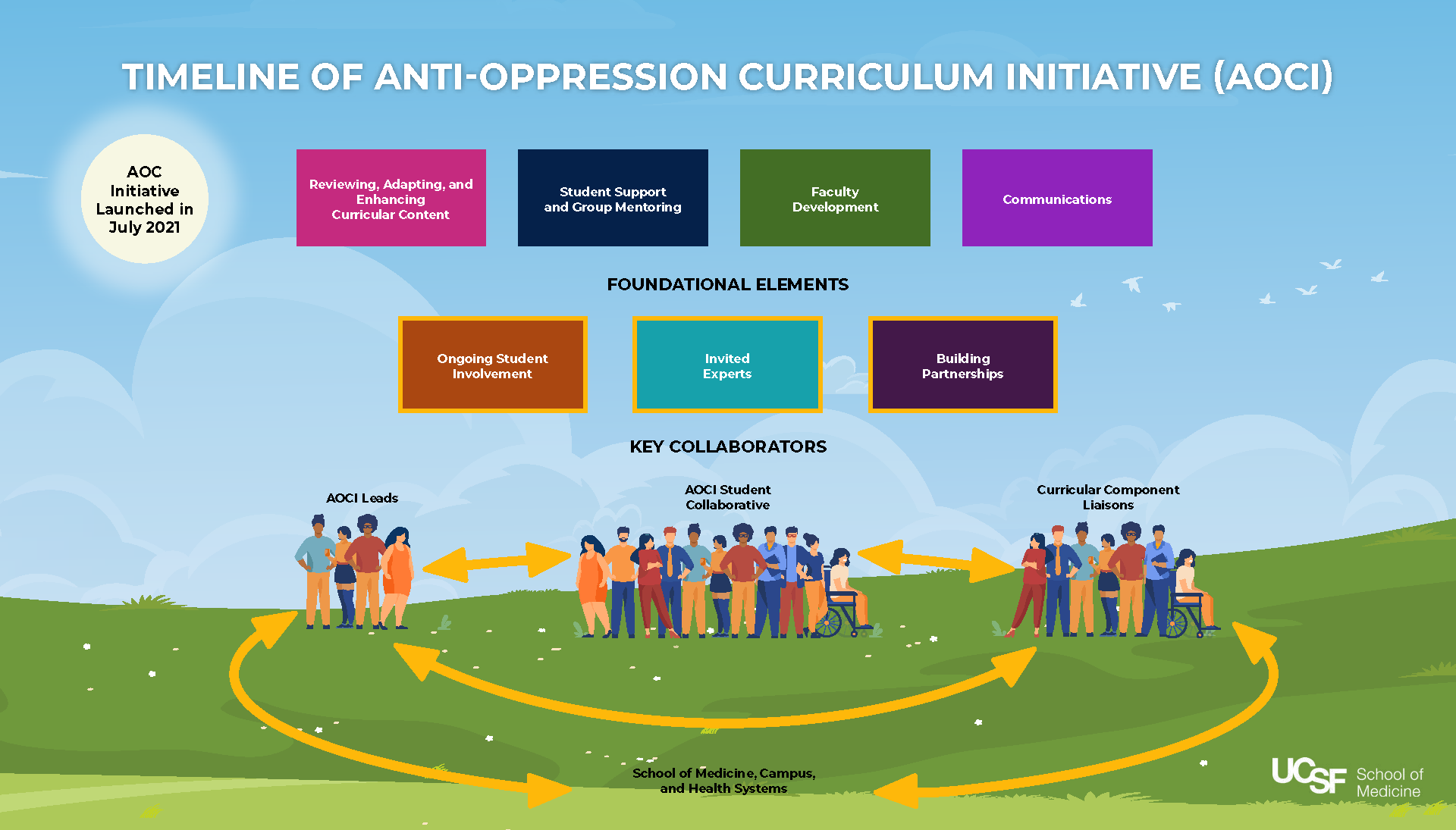 Please see the AOCI timeline for a chronology of milestones and accomplishments. Click on the image to view the timeline graphic (PDF). For a description of progress, please see the AOC Initiative Timeline and Progress page.
Please see the AOCI timeline for a chronology of milestones and accomplishments. Click on the image to view the timeline graphic (PDF). For a description of progress, please see the AOC Initiative Timeline and Progress page.
Students at the Center
UCSF medical students continued to be critical partners, integral to the on-going work of the AOCI. This summer, the Initiative welcomed two yearlong AOCI Fellows, Alli Gomez (MS4) and Jessica Ma (MS4). The AOCI Fellows lead the AOCI-Student Collaborative, and are collaborating with students, staff, and faculty on numerous projects focused on equity and anti-oppression. Each student is also taking the lead on a core AOCI fellowship project.
When asked why they dedicated themselves to this work, Jessica Ma said, “I am really excited about the AOCI's commitment to centering student voices and experiences by facilitating the AOCI-Student Collaborative and having student experts on task forces and working groups. I decided to work as a yearlong AOCI Fellow to help ensure that future generations of clinicians (myself included) are equipped to provide the best care to all patients while actively resisting systems of oppression.”
Alli Gomez responded, “Since starting medical school, I have worked alongside a large coalition of other LGBTQ+ students to improve the representation of LGBTQ+ patients in our curriculum. When the AOCI began, I joined the Student Collaborative to continue being involved in making the curriculum more inclusive and anti-oppressive. When I became aware of the fellowship, I thought it would be a fantastic way to focus all of my energy on the projects I had already been working on throughout medical school, and to try and make a difference in our curriculum before I leave for residency.”
Jessica shared that her core fellowship project, “aims to develop curricular interventions to better equip UCSF medical students with the background knowledge and practical skills they need to protect patients' rights, safety, privacy, and autonomy when navigating complex legal and ethical situations such as mandatory reporting, law enforcement presence in clinical spaces, and workplace violence in healthcare.”
According to Alli, her core fellowship project will, “pilot a session on LGBTQ+ health that will apply a competency-based differentiated learning structure to a small group learning session. The session will deliver tailored content to learners depending on their prior knowledge and expertise, and the goal of delivering appropriate content for all learner levels while promoting psychological safety.”
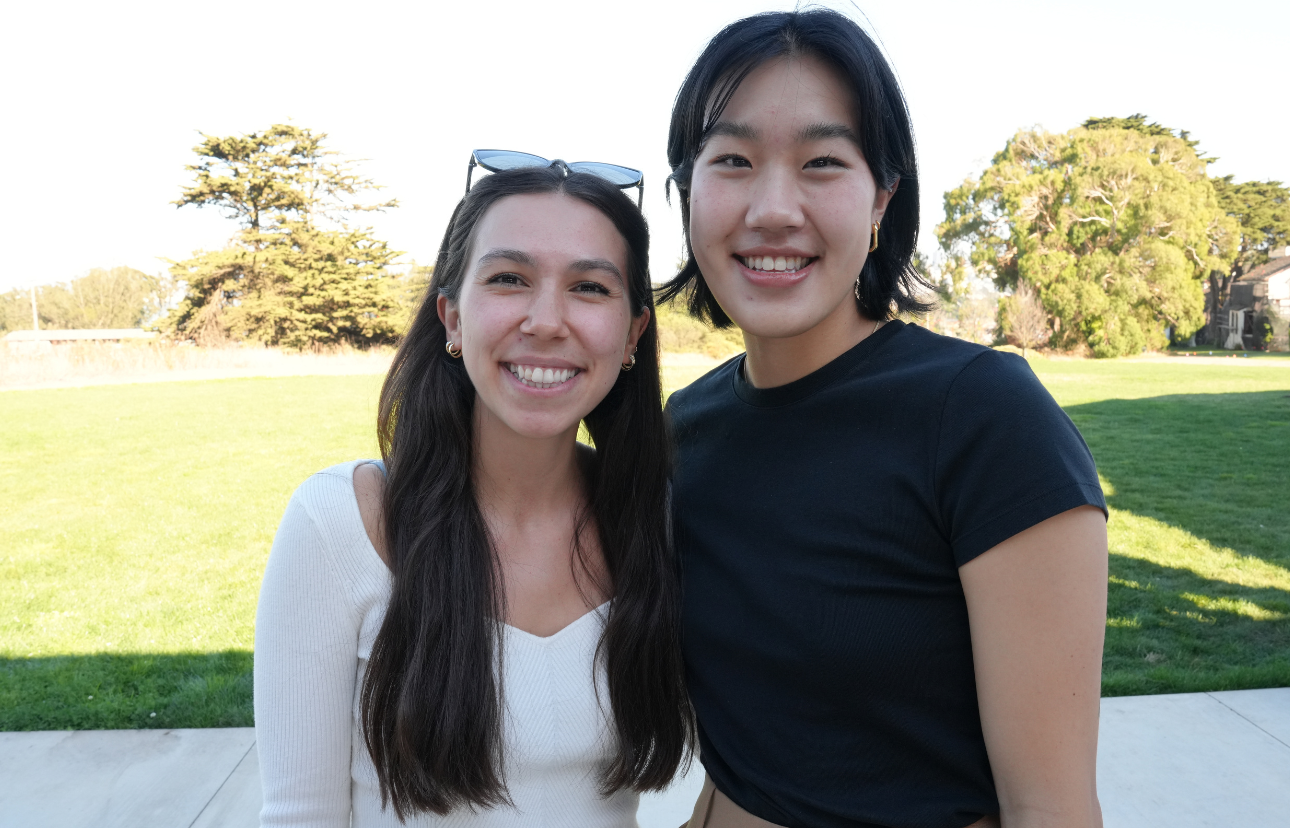
In addition to the work of the yearlong fellows, student members of the AOCI-Student Collaborative are represented on many curricular review and adaptation teams and across all AOCI Task Forces and Working Groups.
Task Forces Make Progress
The Race and Ethnicity Task Force and the Sex, Gender & Sexuality (SGS) Task Force collaborated to develop draft 1.0 recommendations for best practices related to sharing and discussing information about patients’ race, ethnicity, sex, gender, and sexuality in classroom teaching. These recommendations were shared in June 2023 with the School’s educator community, and curricular leaders in Foundations 1 are working in partnership with the AOCI Curriculum Component Liaisons (CCLs) to integrate the recommendations into the school’s classroom-based learning sessions. In line with the goal to continue to re-visit and deepen the recommendations, the AOCI Student Fellows are in the midst of adding additional references and examples to the draft 1.0 recommendations for the classroom, and an updated set of recommendations is expected in early 2024. The AOCI team will be working to connect with stakeholders across our institution to consider next steps for linked recommendations for the clinical learning and caring environment.
Jonah Thornton (MS2) said, “These recommendations frame the curriculum to give students the knowledge to ensure when we approach patients and their families, we do so in a way that is respectful of their lived experiences and mindful of inequitable structures that can be detrimental to health outcomes. I am excited that the field of medicine is beginning to expect this level of accountability, and I look forward to when these recommendations become second nature in medical education.”
This year also saw the launch of the Disability and Working Against Ableism Task Force in May. In addition, a charge for an Addressing Weight Bias/Size Inclusivity Task Force is currently being developed, with the Task Force expected to launch in late fall 2023.
Ongoing Curriculum Enhancement
AOCI Curriculum Component Liaisons (CCL)s have continued their partnerships with curricular leaders across all four years of the medical school curriculum.
One example of the ongoing curriculum enhancement completed via these partnerships is evident in the refinement of Physician Identity (PI) Weeks. PI Weeks has grown its community-engaged learning, advocacy theme, and skills development to counter oppressive systems. Community engagement was featured in the first PI Week, and students will also participate in volunteer experiences. PI Week 3 includes critical reflection on these community experiences. Additionally, PI Weeks is partnering with Alice Hua, PhD, a clinical psychologist in the Medical Student Well-Being Program, to develop AO skills—for example, in Week 4, students discuss dialectical thinking to counter binary and all-or-nothing thinking. Peter Ureste, MD, the AOCI CCL partnering with PI weeks shared, "It is crucial to support students in developing their skills to resist oppressive systems, especially as they transition to the clinical learning environment, where their clinical experiences significantly influence their professional identity formation."
Another example of these collaborative curricular efforts includes AOCI CCL Mia Williams’, MD, MS partnership with the Internal Medicine 110 clerkship, led by Cindy Lai, MD, to improve the clerkship’s social determinants of health curriculum. Drs. Lai, Williams, and Nancy Choi, MD partnered to review and overhaul the curriculum to embody more patient-centered and anti-oppressive principles. The team reviewed the content, teaching methods, and course materials to facilitate students’ experiential learning of social and structural modifiers of health, while also centering patient autonomy as well as learner needs. As changes were made, Dr. Williams engaged with partners across the linked medicine, neurology and psychiatry clerkships and encouraged interprofessional collaborations. Moreover, students' valuable insights, gathered through the AOCI-Student Collaborative, contributed to further refinements. This portion of the curriculum was then re-launched, with an on-going evaluation component to enable continued improvement.
The recommendations generated by the Social, Structural, and Behavioral Course Visioning Working Group marked another key accomplishment. First convened in October 2022, the Visioning Working Group was charged with beginning to reimagine the Health & Society/Health & the Individual curricular blocks with an anti-oppressive lens. Co-chaired by AOCI CCLs Monica Hahn, MPH, MS, MD and Kate Lupton, MD, the Visioning Group included students, faculty, staff, and an external DEIA consultant. The Visioning Group will pass the baton to a new longitudinal Advisory Group later this fall. The Advisory group will include students, faculty, and staff and will provide on-going feedback and input to block leadership team on curricular questions and pilots (e.g., new assessment strategies and learning approaches) as well as on the exemplars used to bring course goals to life.
Visioning Next Steps
In early October, the AOCI team and stakeholders from across the school and university gathered for a retreat with the theme, “Connecting, Celebrating Breakthroughs and Envisioning Next Steps.”
The day was filled with conversations about AOCI accomplishments, challenges, and opportunities. To kick off the day, Catherine Lucey, MD, UCSF Executive Vice Chancellor and Provost moderated an insightful discussion with Megan Mahoney, MD, MBA and Jennifer James, PhD, MS, MSW. Their conversation highlighted the need to have continued courage as an organization to change our culture in authentic and meaningful ways to center anti-oppression and equity. The importance of continuing to engage with students, staff, and faculty across all health professions, while deepening engagement with patients, families, and community members as the School continues to focus on anti-oppressive work was emphasized by panelists, speakers, and retreat participants. The commitment to continuing the process of improving medical education with the aim of contributing to improved processes, systems, and understandings that center health equity was palpable throughout the day.
“It was gratifying to take a moment to reflect and celebrate the connections we’ve developed and the initial steps we’ve already taken together. For me, the retreat was reinvigorating. It reminded me that together we are building a community that will ensure that AO work will ultimately be integrated into all elements of the School of Medicine’s curriculum,” said Denise Connor, MD, Director of the AOCI.
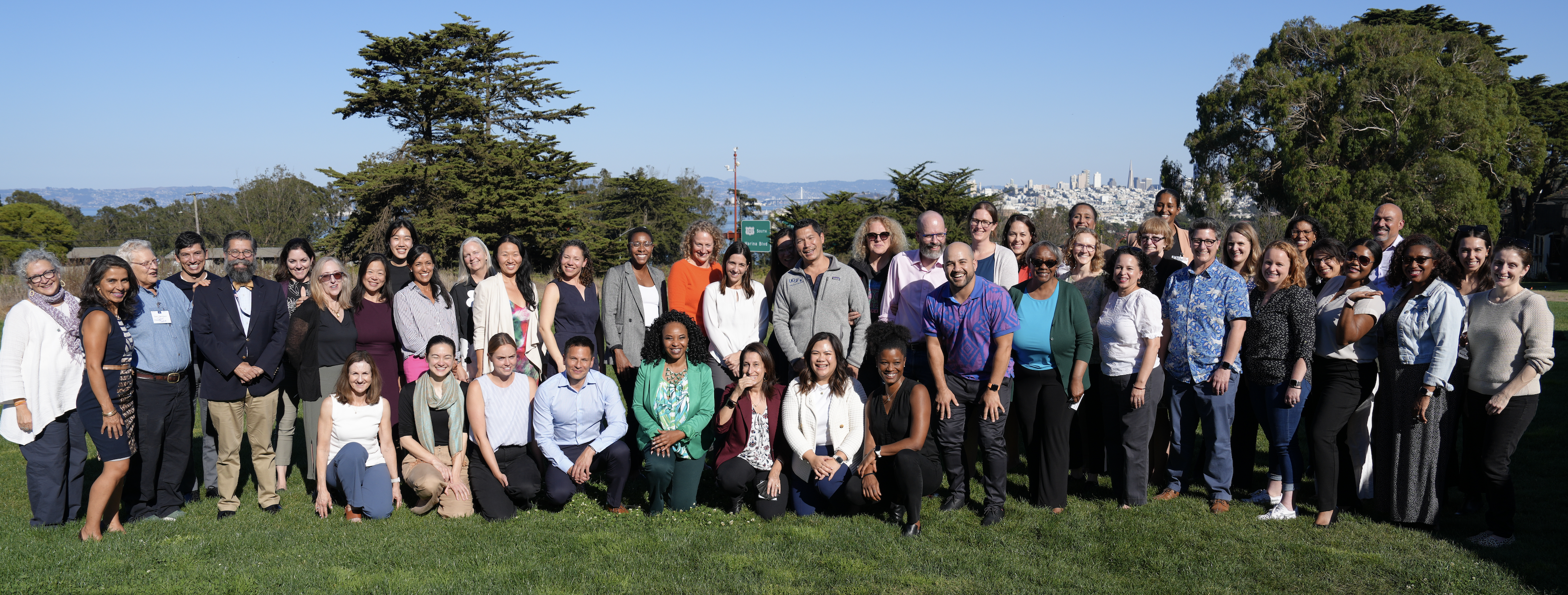
Are you interested in learning more about anti-oppression work at the UCSF School of Medicine? Review the archives of our quarterly Anti-Oppression Updates Newsletter on the AOCI Timeline & Progress webpage.
